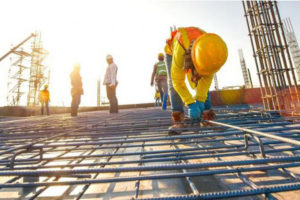
Thai steelmakers eye state projects for lifeline
Steel manufacturers are pinning their hopes on the government’s new and old infrastructure development projects to boost sluggish steel consumption in the country.
The state budget for fiscal 2024 could drive these construction projects once it is approved, said Chaichalerm Bunyanuwat, president of the EAF Long Product Steel Producers Association.
“The steel and iron industry will benefit from infrastructure projects, including highway and road construction as well as road repair,” he said.
A delay in the budget planning as a result of the lengthy process to form a coalition government last year is blamed for causing slow progress in infrastructure development, thus partly resulting in a drop in domestic steel demand.
The government’s infrastructure projects, which are usually high in value, can generate impactful economic impacts by increasing employment and boosting the local economy.
The old projects include the 27.7-billion-baht Rama 3 Road-Dao Khanong expressway, the 10.5-billion-baht Bang Khunthian-Ban Phaeo motorway, and the 72.9-billion-baht double-track rail road connecting Denchai, Chiang Rai and Chiang Khong.
New infrastructure projects include the 6.5-billion-baht Dark Red Line electric rail system, linking Rangsit with Thammasat University’s Rangsit campus, and the 14.6-billion-baht Kathu-Patong expressway in Phuket.
“If the budget is allocated to these projects, it can stimulate steel consumption in Thailand,” said Mr Chaichalerm.
The association has yet to estimate the prospects of the steel industry in 2024 because it depends on many factors, including the impact of the EU’s carbon border adjustment mechanism (CBAM), general elections in many countries, and geopolitical conflicts.
CBAM, which aims to deal with carbon-intensive manufacturing, is viewed as a non-tariff barrier that can affect steel exports to the EU.
In 2023, steel consumption in Thailand was estimated at 16 million tonnes due to people’s weak purchasing power, high household debt and the slow progress of state infrastructure development, but the association believes the volume produced will miss the target.
Last year, domestic steel consumption decreased by 9.1% year-on-year, according to Tata Steel Thailand Plc, a unit of India’s largest steelmaker.
Source: https://www.bangkokpost.com/business/general/2741729/thai-steelmakers-eye-state-projects-for-lifeline


